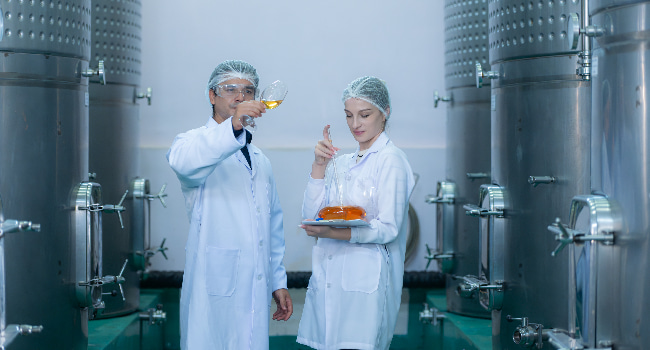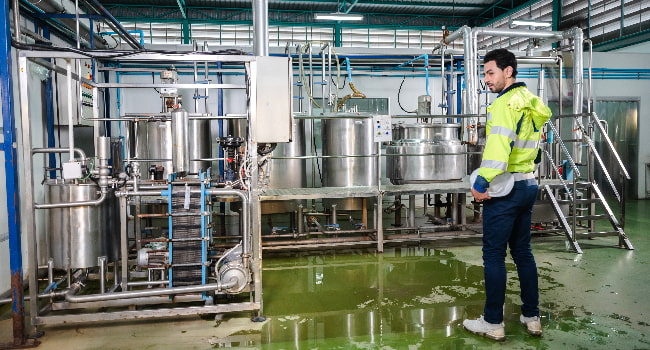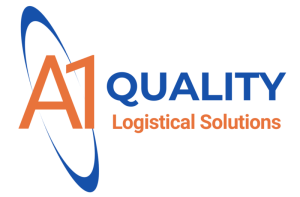A1 Quality Logistical Solutions

- By Haley
- October 31, 2024
Table of Contents
Key Highlights
- Professional sanitation is crucial for ensuring the safety and quality of food and beverages.
- It helps businesses comply with stringent regulations and standards, protecting public health.
- Effective sanitation practices minimize the risk of contamination and foodborne illnesses.
- Trained sanitation professionals implement best practices for cleaning, disinfection, and waste management.
- Maintaining hygiene standards safeguards a company's reputation and builds consumer trust.
- By prioritizing sanitation, the food and beverage industry demonstrates its commitment to consumer well-being.
Introduction
The food and drink industry plays a critical role in public health safe by handling food in the right way. This focus on safety goes hand in hand with strong cleaning rules. It’s important to understand that keeping things clean is more than just washing up. It affects the health of people in the community and supports environmental sustainability.
Importance of Sanitation in the Food and Beverage Industry
The food and drink industry works under strict rules because it affects consumer health. Sanitation is very important in this field since it influences every step, from getting raw materials to serving the finished product. Keeping everything clean and hygienic is essential.
Not following strict sanitation rules can lead to serious problems. Contaminated food can cause illnesses and raise big risks to public health. For businesses, it can mean product recalls, lawsuits, harm to their reputation, and even closing down.

Ensuring Consumer Health and Safety
The main goal of sanitation in the food and drink industry is to keep consumers healthy. By following strict safety rules, businesses help their customers by making sure the food and drinks are safe and free from dangerous germs.
Using strong sanitation steps needs a wide approach. This includes making sure workers keep clean, taking care of equipment, using proper food handling methods, and working well with waste management services. Every part of the operation needs to work together to keep a clean and safe site.
Keeping a clean and sanitary space is closely linked to good waste management. By working with reliable waste management services and following proper disposal rules, food and drink businesses can stop germs from spreading and help keep their customers safe and healthy.
Complying with Regulations and Standards
The food and drink industry must follow strict rules to keep food safe. These rules, which are checked through regular inspections, include how to store food and keep places clean. Following these rules is mandatory. Every business in this field has to comply because it is a legal and moral duty.
To meet these tough standards, businesses need to be proactive. This means they should have strong cleaning procedures, train workers on hygiene, keep detailed records, and check their operations often to find and fix any weaknesses.
By seeing compliance as an ongoing job instead of a one-time task, businesses show they care about keeping high sanitation standards. They also prioritize their customers’ health.
Challenges in Maintaining Sanitation Standards
The need for good sanitation is clear. However, keeping these standards up can be difficult. The food and drink industry moves quickly, and many workers come and go. This makes it tough to keep the cleaning rules followed all the time.
Furthermore, challenges come from fighting unseen threats like bacteria, viruses, and other germs that want to grow. It takes careful cleaning and a good understanding of the risks for food and drinks.

Contamination Risks and Prevention Strategies
Contamination risks are ever present in the food and drink business. Food can get contaminated at many stages, such as when getting ingredients, storing, cooking, and serving. Knowing these risks is really important to create good methods for prevention.
Common contamination risks include:
- Cross-contamination from raw to cooked food
- Not washing hands properly by food handlers
- Not cleaning and sanitizing equipment and surfaces enough
- Pests like rodents and insects
- Storing food incorrectly, which can cause spoilage and bacteria growth
- Not getting rid of solid waste properly
To prevent contamination, we need to take different steps like:
- Setting strict hygiene rules
- Keeping the work area clean and organized
- Using color-coded cutting boards and utensils to stop cross-contamination
- Storing food at the right temperatures
- Making sure there is good air flow to stop condensation and mold
- Having a strong pest control system
Training Staff on Sanitation Best Practices
A good sanitation program needs a well-trained workforce. Educating staff on sanitation best practices is very important. Training should happen all the time. It should include basics like hygiene, food handling, cleaning equipment, and ways to find and report dangers.
Good training is more than just sharing information. It creates a culture of sanitation by ensuring all workers know their role in keeping a safe and clean environment. This teamwork is important for any sanitation program to succeed in the long run.
Regular training sessions are key. Start by handing out clear materials, allow staff to ask questions, and let them provide feedback. This shows commitment to proper practices and helps make food and beverage operations safer and cleaner.
Conclusion
Professional sanitation is very important for keeping people healthy and safe in the food and drink industry. When businesses follow strict sanitation rules, they can lower the chances of contamination and meet industry standards. Training staff on good practices is key to keeping high sanitation levels. In the end, focusing on sanitation protects consumers and helps maintain a good reputation for food places. To find out more about sanitation practices and their benefits for your business, check out our FAQ section.
Frequently Asked Questions
How does professional sanitation contribute to food safety?
Professional sanitation helps keep food safe by reducing contamination risks. These special services include doing waste disposal the right way. They also focus on the best practices for handling and preparing food. This work is important for protecting people’s health.
How often should a food and beverage facility undergo professional sanitation?
The frequency of professional cleaning depends on different things. This includes the size of the place and what it does. It is important to have regular cleaning service, along with garbage pickup, dumpster rental, and recycling. This helps keep the environment clean and healthy.

Haley serves as the Marketing Manager for A1 Quality Logistical Solutions. She joined A1QLS in 2023 with her prior experience gained with GXO and XPO Logistics.
